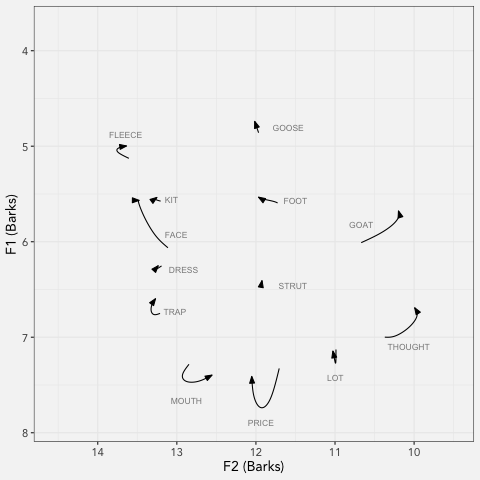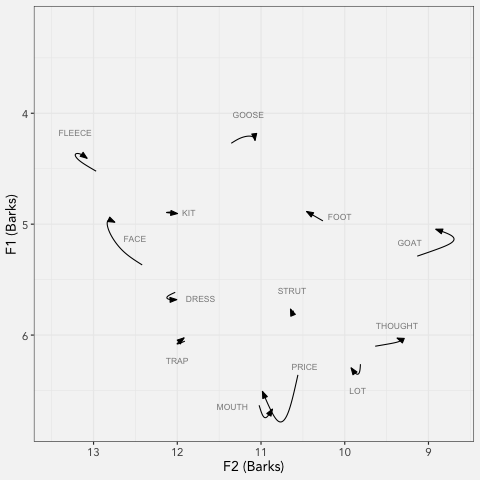I presented at the 6th annual Linguistics Conference at UGA today! My presentation, which was called “Real Time Vowel Shifts in Georgia English” compared Georgians born around the 1890s to those born in the 1990s—100 years of change! The gist: nearly every vowel has changed, and it seems like the trajectory of that change is in the direction of the Elsewhere Shift, rather than just a simple recession of Southern features.
Download the slides here!
The data came from two very different sources. The older speakers, were born between 1887 and 1903, were recorded doing Linguistic Atlas interviews and are part of the Digital Archive of Southern Speech. The younger speakers, who were born between 1994 and 1997) were UGA undergraduates that I recorded as they read sentences in a lab. Two very different datasets, but they’re all Georgian natives, so it starts to give us a glimpse into how things have changed around here.
Here’s a summary of the changes I found.
price was monophthongal for older speakers and definitely a diphthong in the younger speakers.The Euclidean distance between
fleece andkit and between face anddress was grew over 100 years, suggesting the younger speakers’ vowels are not as “Southern” sounding.While the older speakers’
lot andthought were close, the younger speakers’ were almost entirely merged.The front lax vowels,
trap ,dress , andkit were front and monophthongal in the older speakers while the younger speakers realized them more centralized and more diphthongal.trap underwent the most change, thendress , and thenkit .goose was centralized even in the older speakers, but the younger speakers took it further by using an even more fronted onset.
This animation basically sums up the entire talk. Plus I just had fun making animations! Here’s the change for the women.

And here’s the change for the men.

Overall, it appears that it’s not just that the younger speakers lack features associated with the South, it’s that they’re also using realizations characteristic of other regions like California and Canada. It makes sense, since Atlanta is a large metropolitan area and is kind of known as a non-Southern city in the middle of the South. But this might be an indication that the Elsewhere Shift has made its way into the South.